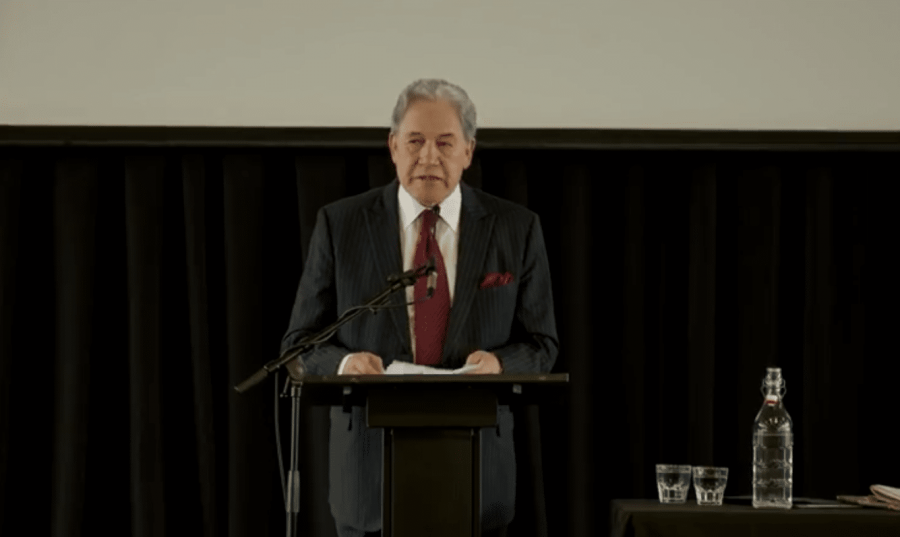
Former Deputy Prime Minister and New Zealand First leader, Winston Peters, addressed a gathering of around 200 attendees at the Invercargill Workingmen’s Club on Sunday afternoon, where he touched on a range of pressing issues affecting New Zealanders. Peters’ comprehensive discussion covered topics such as the Tiwai Smelter, aquaculture, the treaty, sex education in schools, and media coverage bias.
Related: Watch: National Party Deputy Leader Nicola Willis Public Meeting Speech
Peters took a firm stance on the future of the Tiwai Point aluminium smelter, emphasising the importance of its continued operation. NZ First, if in government, pledged a commitment to a 20-year agreement with Tiwai Point, subject to a 10-year review, ensuring a fair electricity cost based on the actual cost of supply. Peters passionately defended the smelter as a vital contributor to the Southland and New Zealand economies, challenging the notion that the industry was receiving subsidies for its electricity consumption.
The seasoned politician also criticised the closure of the Marsden Point Refinery and advocated for stronger domestic procurement practices, stating, “Today if our fuel supply is disrupted, we can’t even supply essential industries like hospitals, ambulances, fire services, and police to carry out their critical work until full fuel supply is restored.”
Addressing Southland’s role in the nation’s economy, Peters announced NZ First’s intention to exempt aquaculture from the Coastal Policy Statement 2010, facilitating the establishment of a salmon farm on Stewart Island. He expressed frustration with Wellington-based decision-making processes that hinder local development, labeling them as obstructive to progress.
Peters emphasised Invercargill and Southland’s substantial contributions to the national economy, highlighting their essential role in sustaining New Zealand’s economic well-being. He touched on issues ranging from housing and education to law and order, while voicing opposition to co-governance and advocating for a unified approach to governance.
The meeting also saw Peters critiquing the mainstream media’s coverage of political speeches, particularly highlighting the distortion of messages. He referred to the Public Interest Journalism Fund as a “bribe” and raised concerns over what he viewed as biased journalism that misrepresents politicians’ statements.
In his closing remarks, Peters warned against rising sentiments of racism and separatism, asserting that these factors threatened the fabric of democracy. He urged attendees to remain vigilant and uphold democratic values, while also encouraging critical thinking when engaging with media.
Winston Peters’ meeting in Invercargill left attendees with a plethora of subjects to contemplate, ranging from economic policies to media integrity, while underscoring the crucial role that informed and engaged citizens play in shaping the nation’s future.
Editors note: I am proud to say whatsoninvers.nz did not apply for any of the media slush fund.

